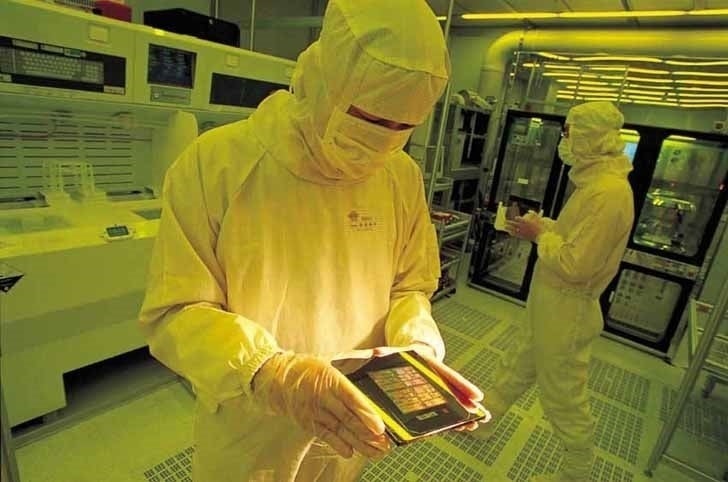TSMC, other chip firms, respond to request from U.S. for supply chain data

Just before October 2021 came to an end, we told you that in an effort to better understand the semiconductor supply chain, the U.S. Commerce Department was asking Taiwan-based semiconductor firms to supply it with certain data. Among the companies that the U.S. was seeking information from was Taiwan Semiconductor Manufacturing Company (TSMC). The latter is the biggest independent foundry in the world and manufacturers chips for big-name tech firms like Apple, AMD, Nvidia, MediaTek, and others.
TSMC says that it has responded to the request by the U.S. for supply chain information without offering customer-specific data
Bloomberg reports today that TSMC has responded to the request from the U.S. Commerce Department by giving the Commerce Department the supply chain information it wanted but without giving up customer-specific data. TSMC released a statement today that said the same thing. In an email to Bloomberg News, TSMC spokeswoman Nina Kao said that the foundry is still committed to "protecting customers' confidentiality as always."

TSMC has responded to U.S. requests for supply chain information
The questionnaire handed out by the U.S. asked the semiconductor companies to disclose information about inventories, backlogs, delivery time, procurement practices, and any measures being taken to increase the output of chips. The U.S. also asked for information relating to each firm's top customers. A global chip shortage has affected the production of certain tech products sold by tech firms including Apple.
TSMC was bumping up against a November 8th deadline imposed by the U.S. Commerce Department to submit the documents even though responding to the request was totally voluntary. Still, Commerce Secretary Gina Raimondo warned the semiconductor firms that if they didn't turn over the information, the U.S. could invoke the Defense Production Act to force them to.
Taiwan and South Korean officials are afraid that the U.S. is requesting that the semiconductor firms turn over their trade secrets. The Chinese government is worried that the Commerce Department will go through the data provided by TSMC to sanction Chinese firms similar to the way that the U.S. sanctioned Huawei for allegedly being a national security threat to the U.S.
South Korean firms also say that they will respond to the U.S. Commerce Department's request for information
Earlier this morning, South Korea's finance ministry said that its tech firms will deliver some information about semiconductors to the states although they will only "partially comply" with the data request. The country is the home to Samsung and Samsung Foundry, which along with TSMC, are the largest contract foundries in the world building chips for manufacturers who design the components but do not own any production facilities.
The global chip shortage has been blamed on the pandemic. More precisely, auto manufacturers decided to hold off on ordering the usual amount of semiconductors that they usually order figuring that the pandemic would cost them sales. Instead, demand for new vehicles soared leaving car manufacturers short on their chip inventories and forcing them to back up the truck and order as many chips as possible.
The chip shortage has started to affect Apple. CEO Tim Cook recently said, somewhat surprisingly, that older chips are where Apple is feeling the pain of the shortage. Still, the company recently said that it would cut iPad production by 50% in order to make sure that it had enough components to cover production of the iPhone 13 series. Apple can get away with doing this because demand for the iPad is lower than that for the latest and greatest iPhone line.
Besides cutting back on iPad production, Apple has also reportedly reduced orders for older iPhone models still being sold. That dovetails with the chip shortage preventing the tech giant from obtaining the older semiconductors used on those models.
Follow us on Google News














Things that are NOT allowed:
To help keep our community safe and free from spam, we apply temporary limits to newly created accounts: